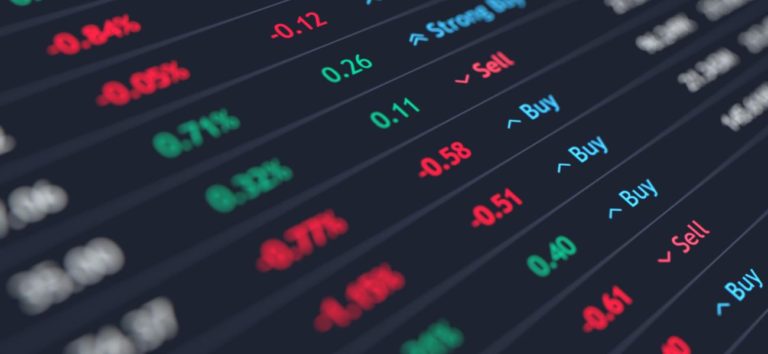
Trade: To buy or sell a stock, bond, or option.
Margin: The use of borrowed funds to purchase a stock; the (security) capital required to adequately pay for the risk on an option transaction.
Volume: The total number of shares traded in a particular time period on a specific stock.
Bull market: A market with a strong upward bias; stock is being accumulated.
Bear market: A market with a downward bias; distribution of stock is occurring.
Short sell: To sell short means that a person believes a stock will soon decline in value, so he or she borrows it from a brokerage firm and sells it, in hopes of repurchasing it at a lower price. Upon repurchase, the stock is returned to the brokerage firm it was borrowed from.
Fill: The term applied to the price at which a trade is executed.
Bid: The highest price at which a floor broker, trader, or dealer is willing to buy a security or commodity for a specified time.
Ask: The lowest price at which market makers and floor traders of a specific market are willing to sell a security, and the price at which an investor can buy it from a broker-dealer.
Trader: Someone who buys and sells stocks and options frequently with the objective of short-term profit.
Investor: Someone who looks at the Big Picture, ignoring the day-to day price fluctuations, focusing instead on making investments for the long haul.
Market maker: An independent trader or trading firm that is prepared to buy and sell shares or contracts in a designated market. Market makers must make a two-sided market (bid and ask) in order to facilitate trading.
Institutional investor: A person or organization that trades large enough quantities of shares that the trades qualify for preferential treatment and lower commissions. Institutional investors enjoy fewer protective regulations and are usually more knowledgeable and better able to protect themselves from risk. Individual investors often follow sizable stock trades initiated by institutional investors since they can have a significant effect on a stock’s price performance, not to mention market sentiment.
Interest rate: The charge for the privilege of borrowing money, usually expressed as an annual percentage rate of the principal amount borrowed.
The Fed: Nickname for the Federal Reserve Board (FRB), a seven-member group that directs the operations of the Federal Reserve System (FRS). Board members are appointed by the president and are subject to approval by Congress. The FRS supervises the printing of currency and the regulation of the national money supply, examining member banks to ensure they meet various regulations and acting as a clearinghouse for the transfer of funds for the government’s finances.
Inflation: Increase in the general price level of goods and services (i.e., your dollar won’t buy as much as it used to). Inflation is commonly reported using the Consumer Price Index (CPI) as a measure. Inflation is one of the major risks to investors over the long term, as savings may actually buy less in the future if they are not invested with inflation as a consideration. The inflation rate refers to the rate of change in prices.
Liquidity: The ease with which an asset can be converted to cash in the marketplace. A large number of buyers and sellers and a high volume of trading activity provide high liquidity.
Brokerage firm: A firm that charges commissions for executing buy and sell orders submitted by individuals or other firms.
Public offering: The sale of securities by an issuing corporation to the general investing public.
Investment bank: A financial institution in the business of raising capital for corporations and municipalities through initial public offerings, secondary offerings, and debt (bond) offerings.
Private company: A company that may or may not issue private stock and is nevertheless not publicly traded.
Public company: A company that issues stock to be traded on the public market.
Sector: An unofficial group composed of companies involved in the same industry, such as technology, energy, or biotechnology.
Market capitalization: The value of a company calculated by multiplying the number of outstanding shares by the current market price per share.
Going long: To buy stock, options, or futures in order to profit from a rise in the market price.
Bull market: A rising stock market over a prolonged period of time, usually caused by a strong economy and subsequent increased corporate profits.
Cash account: An account in which the customer is required to pay in full for all purchased securities.
Margin account: A customer account in which a brokerage firm lends the customer part of the purchase price of a trade.
